Specialty veggies make San Marcos farm a favorite with Michelin-starred chefs
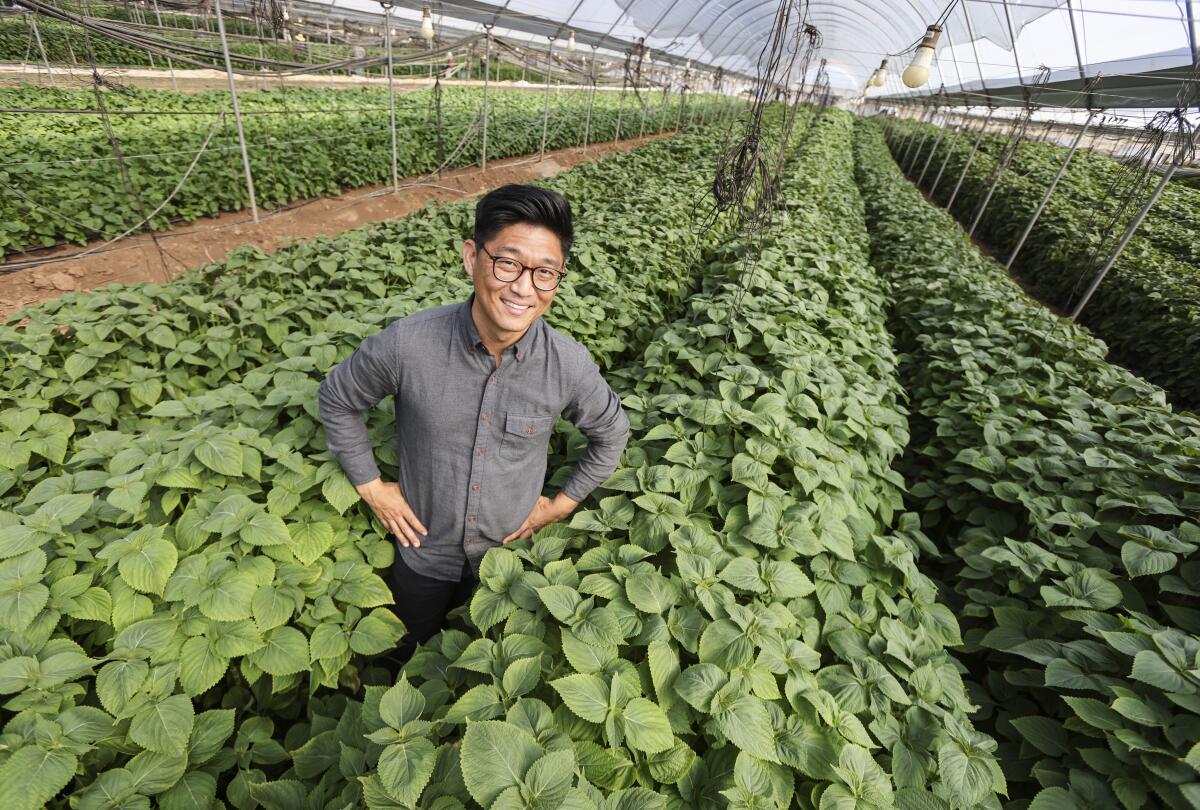
- Share via
SAN MARCOS, Calif. — Hidden inside greenhouses up a dirt road in San Marcos’ Twin Oaks Valley are plants with leaves that taste like raw oysters, chocolate-flavored mint, lime and pineapple varieties of basil, snow-white strawberries, pink blueberries and full-grown tomatoes as tiny as currants.
Launched in 2016 by Aaron Choi and his wife, Emily Chen Choi, Girl & Dug Farm’s unusual crops have attracted some of the nation’s pickiest customers: Michelin-starred restaurant chefs.
Before the pandemic, the farm’s 60 restaurant customers included all but one of the Michelin-starred chefs in Los Angeles, as well as some of the most acclaimed restaurants in San Diego, New York and Chicago.
“Aaron is growing stuff that other people aren’t growing,” said Eric Bost, executive chef at Jeune et Jolie restaurant in Carlsbad, Calif., who started buying produce from Girl & Dug at his former L.A. restaurant, Auburn. “He takes risks with new product and puts it out there, not knowing how it will turn out, and he gets so excited when he’s come up with something new.”
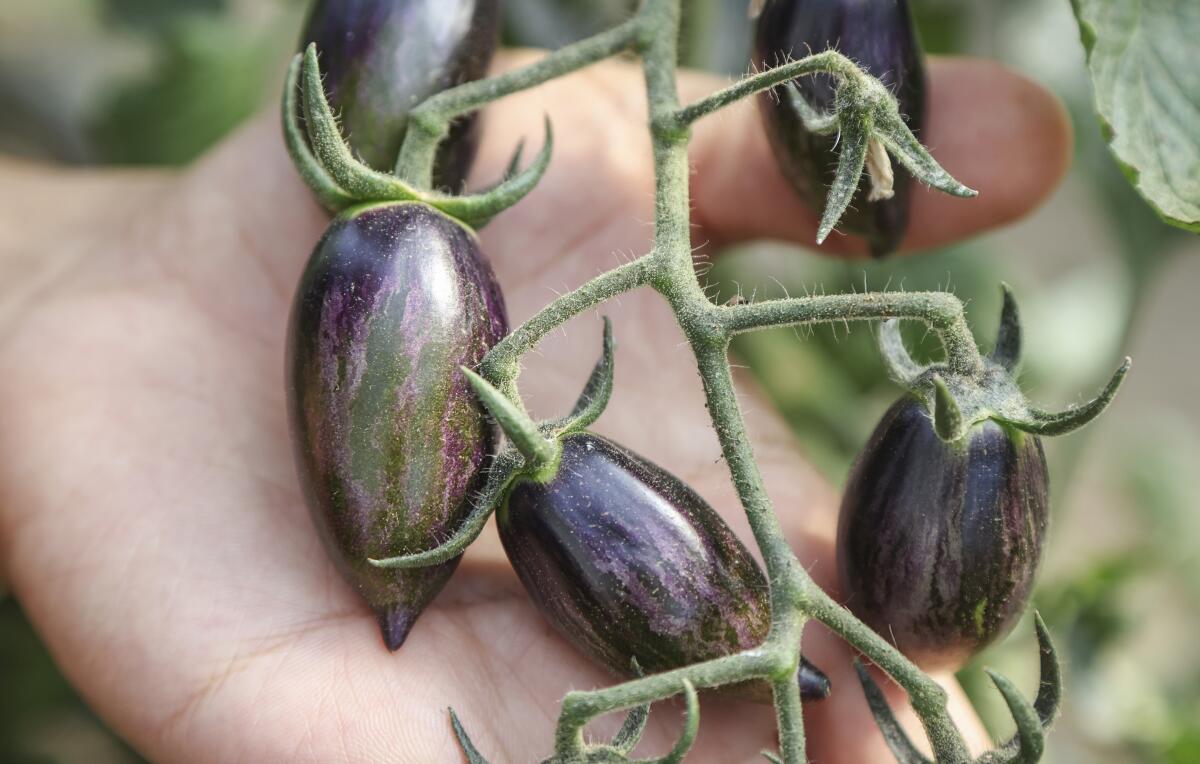
Aaron Choi said he loves growing food that introduces chefs and their diners to other nations’ cultures and cuisines through their native crops, such as the Argentine yacon water root, Andean pichuberries or a spiny South African cucumber the Chois call “Porcukepine.” He calls this business model his “seed-farm-pan-fork dream.”
“Every encounter with a delicious variety, no matter how strange or common, sparks and deepens an awareness of that region and its people,” Choi said.
In the months leading up to the pandemic, Choi said, sales in the farm’s restaurant division were growing at a “meteoric rate.”
But when the state ordered a lockdown in mid-March 2020, all of Choi’s restaurant orders evaporated within 36 hours. To fill the gap and keep the farm’s 48 workers employed, he quickly launched an e-commerce website, girlndug.com, that began shipping specialty produce directly to consumers. Now home cooks could also buy the farm’s psychedelically colored Atomic tomatoes, striped Badger Flame beets and a trio of black and white potatoes from Row 7 Seed Co. that the Chois — avid “Star Wars” fans — have renamed Darth Tater, Starch Maul and Star Tuber.
Over the past six years, Choi has experimented with nearly 130 specialty greens, vegetables, herbs and fruits. Many of these crops have failed, either because they didn’t grow well or they didn’t have the unique qualities that chefs were looking for. Sometimes persistence pays off. For three years, he tried growing the Peruvian root vegetable oca, but the crops were continuously decimated by heat, frost, flooding and wildfire. Now the crop is finally viable and oca is being served at chef Richard Blais’ new Carlsbad restaurant Ember & Rye.
Choi said he doesn’t mind failing, because it’s impossible to succeed without trying.
“I call it the supply-and-demand dilemma,” said Choi. “You can’t create a market without product. I had a hunch that chefs might be looking for something new and I wanted to see if I could grow it.”
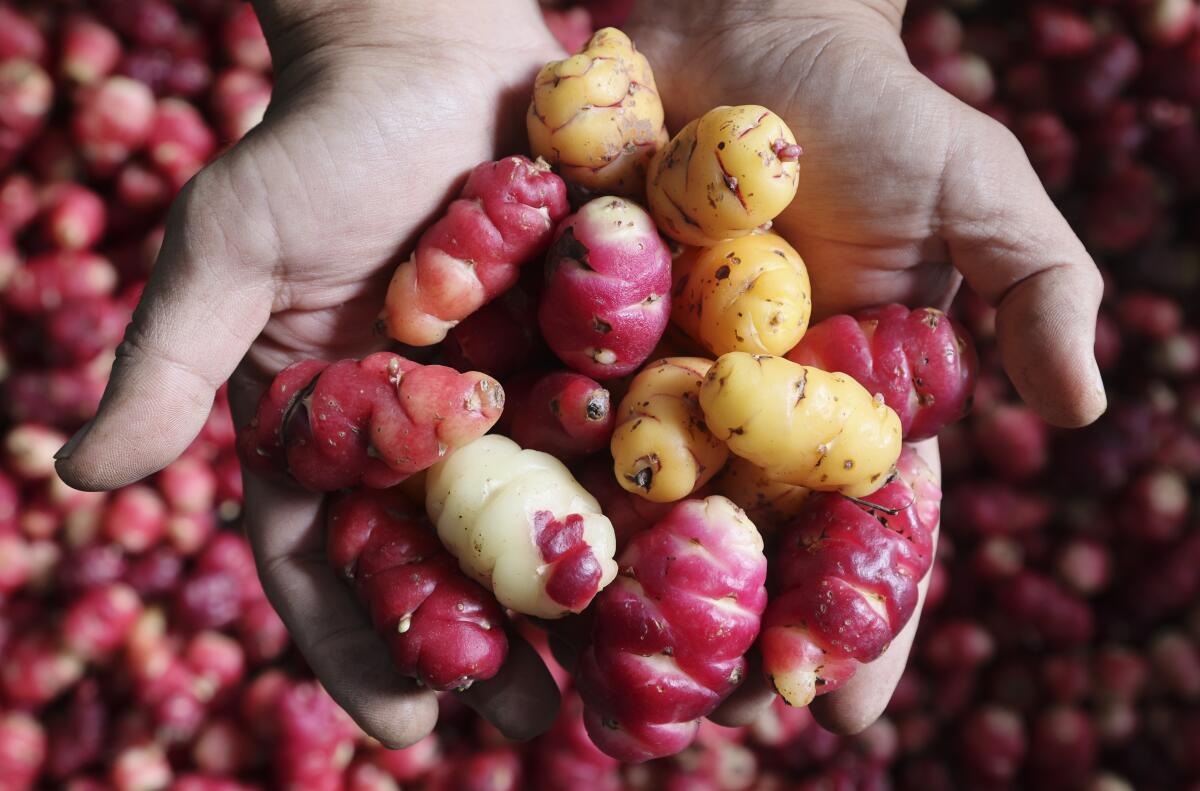
Choi was 6 years old when his family emigrated from South Korea to the Los Angeles area in 1987. His parents, Brian and Agnes Choi, had planned to make a living selling dried flowers at swap meets. Instead, they bought a florist shop in Torrance; it grew into a small chain.
Aaron’s oldest sister, Carol Choi, still owns the last remaining flower shop in Rancho Palos Verdes. His other sister, Lauren Choi, is a financial adviser. In 2011, their parents semi-retired to an 8-acre farm off Quarry Road in Twin Oaks Valley. Called Lucky Growers, it supplies wholesale Korean vegetables such as sesame leaf (perilla), cucumbers, chiles and other produce to Korean markets nationwide.
For many years, Aaron Choi, 40, resisted joining the family business. In college, he studied biology, philosophy and religion and considered careers as a veterinarian, a cancer researcher and a theology professor. But in 2009, he changed his mind and went to work for Lucky Growers, which has expanded over the years to include Girl & Dug on a combined 56 acres.
By 2016, the wholesale Korean vegetable business was successful but Choi was still looking for a creative outlet of his own. He and his wife are fans of TV’s “Top Chef” series and chef-driven restaurants like Nancy Silverton’s Osteria Mozza in L.A. So in 2016, they decided to create a second farming operation specializing in crops for high-end restaurants. They named it Girl & Dug Farm, which was inspired by their daughters, Ella and Olivia, and their very chubby beagle, Dug.
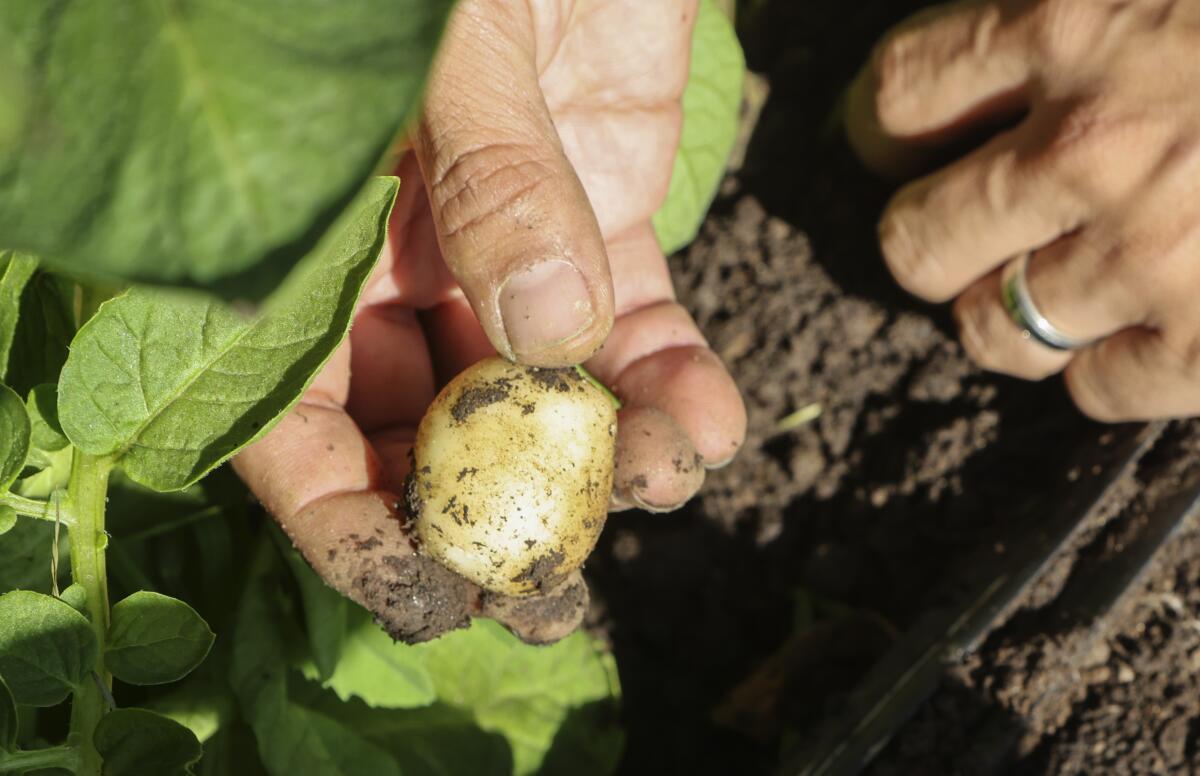
Girl & Dug’s crops now make up about 20% of the acreage in San Marcos and 80% of a 38-acre farm launched last year in Portland, Ore. Girl & Dug specializes in what Choi calls “kinder greens.” Unlike microgreens, the infant sproutlings that decorate plates as garnish at many restaurants, kinder greens are like “first graders,” with much more flavor and physical definition, Choi said. This business — all grown from seeds he buys from companies around the world — includes spring greens mixes named after Ella and Olivia, edible flowers and ice plant and plants with unique flavors, colors, shapes and textures.
Anthony Wells, executive chef at Juniper & Ivy in San Diego’s Little Italy, was Choi’s first Girl & Dug customer.
“He stopped in one day with a box of things and he’s got this infectious personality,” Wells said. “He’s someone that you want to know. He’s so passionate about what he’s doing. Every time I’ve talked to him since then, he’s got some new seed or vegetable heirloom that he wants us to try.”
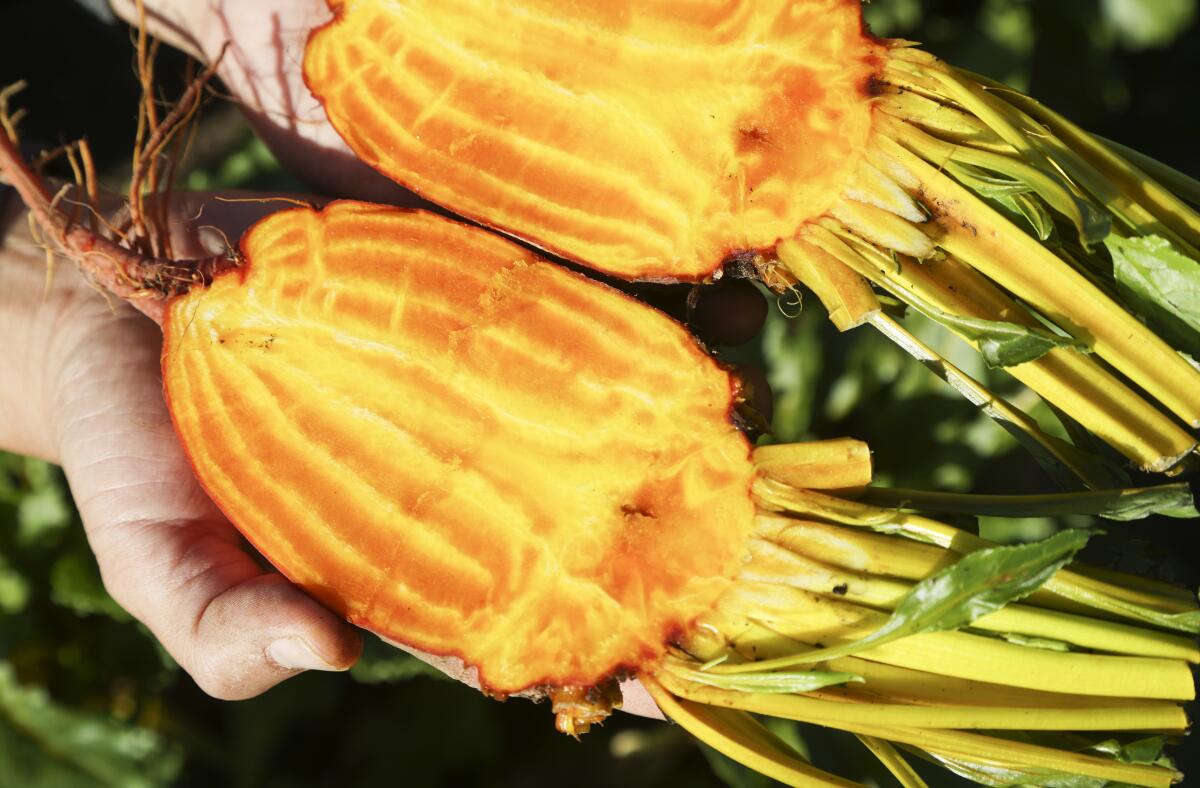
Wells’ favorite Girl & Dug items are the farm’s kinder-size butternut squash, its wildly colorful Atomic tomatoes and its licorice-flavored sesame leaves, which diners use as a wrap for ahi crudo “tacos.” Bost at Jeune et Jolie said he loves the farm’s pichuberries, red shiso, sorrel, radish flowers and other highly acidic items that brighten up the flavors in his dishes.
As the pandemic winds down, Choi said about one-third of his restaurant customers have returned and the direct-to-consumer division has become a viable and growing business. He’s planning for more expansion. That’s why he and his wife opened the Portland farm last year, where the cooler, rainy climate is more hospitable to growing Andean vegetables such as oca and Scandinavian gooseberries. Down the road, he plans to expand the farm’s plant breeding operation and, possibly, open some farms on the East Coast.
Wells said he’s happy that Girl & Dug is expanding. On May 24, he will take all of his cooks and servers to the San Marcos farm for a tour so they can get as excited about its products as he is.
“I want them to see how passionate this farmer is about what he’s growing,” Wells said. “What he grows is so beautiful. It’s like a painting.”
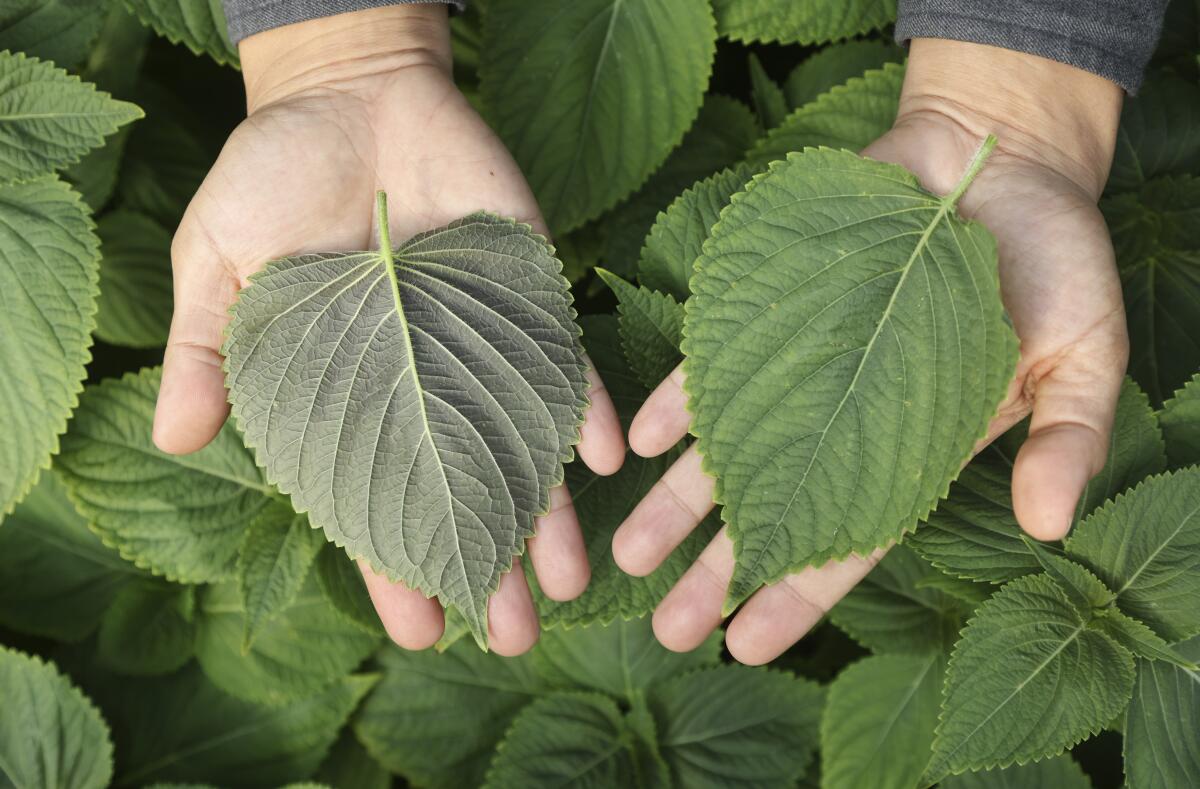
More to Read
Eat your way across L.A.
Get our weekly Tasting Notes newsletter for reviews, news and more.
You may occasionally receive promotional content from the Los Angeles Times.








